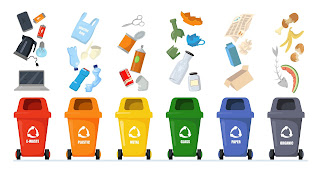Donating Responsibly: A Guide to Making Smart Donations
Making donations to charities and other organizations is a great way to give back to your community. Whether you’re donating old clothes, obsolete branded merchandise, or simply writing a check, there are certain steps you can take to ensure that your donation will be used responsibly.
Let’s explore the best practices for making donations so that you can rest assured that your contribution is going toward something meaningful.
- Research Potential Beneficiaries Thoroughly
Before you donate, it’s important that you do some research into the organization or charity to which you plan on giving. Make sure their mission statement aligns with your goals and values; this will help ensure that your donation has a positive impact on the world around us. Additionally, look for any independent reviews of the charity or organization before committing any funds; this will help make sure that your money isn’t being misused in any way. Finally, look into how much of the money from donations actually goes towards helping people. Some charities may use most of their donations towards administrative costs instead of helping those in need. - Check the Charity’s Rating
One of the best ways to ensure that your donation will be used in a responsible manner is to check the charity’s rating. There are a number of websites that rate charities, such as Charity Navigator and the Better Business Bureau Wise Giving Alliance. These websites will provide you with information on how much of the charity’s donations go towards overhead costs, how efficiently the charity uses its donations, and how well the charity is managed. - Be Wary of Charities That Ask For Personal Information
Whenever possible, try not to provide any personal information when making a donation. Many fraudulent charities exist solely to collect personal information from unsuspecting donors so they can commit identity theft or other types of fraud. If an organization asks for anything more than basic contact information like a name and email address, consider it a red flag and avoid donating at all costs. - Do Not Rush Into Making Donations
It’s always better to take some time before deciding whether or not to make a donation; this will help ensure that you are making an informed decision about where your money is going. Take some time to research both the cause itself and the charity associated with it so that you have peace of mind knowing exactly where your donation is going and how it will be used in the future. - Donate Directly When Possible
When possible, try to donate old clothes directly instead of through third-party organizations or intermediaries. This will help ensure that your donation goes directly into the hands of those who need it most without any unnecessary delays or complications along the way.
Conclusion:
Donating responsibly takes time and effort but pays off in the long run if done correctly you don’t want someone taking advantage of your generosity by misusing your hard-earned money. Do thorough research before committing any funds and always make sure that you are comfortable with how much personal information you disclose when making donations online or over the phone. By following these tips, you can rest assured knowing that your generous contribution is being put toward something meaningful.




Comments
Post a Comment